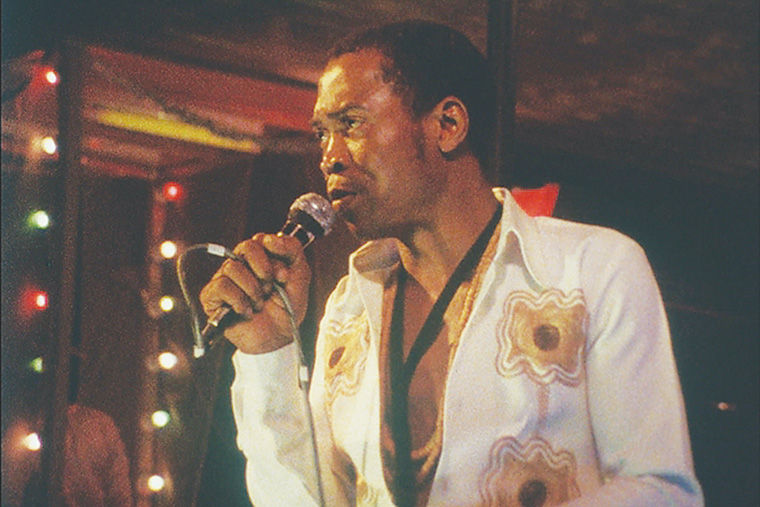Fela Kuti’s legacy lives on through documentary film, and music
Fela Kuti
September 22, 2014
Nigerian musician and political activist Fela Kuti will not keep quiet—even 17 years after his death.
The 2014 documentary “Finding Fela!” telling the story of Kuti’s life, is traveling around the U.S. until February 2015 and played at the Music Box Theatre, 3733 N. Southport Ave., from Sept. 12–18.
Fela Kuti transformed African music from Highlife to an even more jazzy, groove-oriented form called Afrobeat. During the ‘70s and ‘80s, he used his music as a platform to stand against the oppression and militaristic dictatorships that controlled much of the continent—including Nigeria—after European colonization came to an end. In doing so, Kuti became extremely popular throughout Africa as well as an enemy to the government and was consequently subjected to many violent raids on his home and numerous arrests.
Femi Kuti, Fela’s eldest son, said his father became an icon for the peoples of Africa, especially among younger residents, because of his constant fight against the military dictatorships in Nigeria.
“Using music as a weapon and never compromising the integrity of the message of his music, he was very fearless,” Femi Kuti said. “He never compromised, he never backed down. He never ran, no matter what dictatorship was in power. He had so many opportunities to leave Nigeria and he stayed, and that is probably what he is most admired for, especially here [in Nigeria] by the young people.”
Aaron Cohen, a reviews editor at Downbeat Magazine and freelance writer for the Chicago Tribune, has been studying Kuti’s work since his early 20s. Cohen has also written articles about the musician and said Kuti used his lyrics to fight those in power.
“In terms of his lyrics, he was just so uncompromising, whether it was about corruption or about international colonization of Africa,” Cohen said. “Even though there have been a lot of changes in Africa and around the world, a lot of what he said really stood out as the truth then and is still true to this day.”
Fela Kuti is still revered across the continent today because of the ongoing corruption throughout Africa, Femi Kuti said.
“Because oppression is still going on, many people refer to him as a prophet because he predicted many of the things that have happened [in Africa],” Femi Kuti said. “A lot of young people still look up to him, everybody always talks about him because the corruption is still so bad here.”
Fela Kuti was also popular for his fight to return to African roots and to strip away the influences of colonization from African culture.
“He defended the African culture and tradition in whatever he was doing, even to the detriment of his health, because he believed so much in the African way,” Femi Kuti said. “He understood what colonialism and super-nations influenced negatively on the culture and mindset of the African people, in education, our way of life and religion.… They were brainwashing us against ourselves.”
Even though Fela Kuti was known for his political activism, he would not have been able to spread his message without his music, Cohen said, adding that Fela Kuti’s ability to captivate an audience and spread his message was his charisma as a frontman.
“When I saw Fela in ‘89 … that charisma that he had as a band leader was so palpable, so strong, speaking as a 20-year-old in the audience,” Cohen said. “There was a mischievous, dangerous charisma that he had on stage that was just so striking that people would compare him to artists like Bob Marley and James Brown.”
Michael Veal, a professor at Yale University who wrote the book “Fela: The Life And Times Of An African Musical Icon,” said his creation of Afrobeat influenced many artists and can be heard across the world today.
“He was a master composer of groove-based music, and he did a beautiful job of combining that with political awareness,” Veal said. “Musical sounds influence each other. It does not have to be called Afrobeat forever—that was his moment—but the influence continues over time with different forms of music.”
Femi Kuti said his father was an icon to other musicians while he was alive.
“Miles Davis was influenced by my father … Paul McCartney listened to my father,” Femi Kuti said. “Even though his music was never mainstream, great musicians were influenced and inspired by him.”
Fela Kuti’s youngest son, Seun Kuti, performs under the moniker Seun Kuti & Egypt 80 with many musicians who played in the group when his father led the band. Seun Kuti & Egypt 80 performed at the World Music Festival held Sept. 13 in Chicago.
Fela Kuti is one of the most influential Africans the world has seen according to Veal, and his message was a simple one .
“You can have a great time, but be politically aware,” Veal said.








